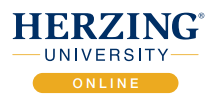How to Become a Healthcare Documentation Specialist in New Hampshire

Want personalized recommendations?
Let's match you to the right program

A healthcare documentation specialist, also known as a medical transcriptionist, is a professional responsible for converting doctors' audio recordings into written documents. They play a crucial role in maintaining accurate medical records and ensuring effective communication between healthcare providers.
Article continues after recommendations
Recommended for you
Responsibilities of a Healthcare Documentation Specialist
- Listening to audio recordings of doctors' notes, medical procedures, and patient information.
- Transcribing and editing the audio recordings into written documents.
- Ensuring the accuracy of the transcribed documents by reviewing and proofreading them.
- Following specific formatting and documentation guidelines.
- Understanding medical terminology and maintaining knowledge of medical procedures and treatments.
- Ensuring patient confidentiality and adhering to privacy regulations.
Work Environment for Healthcare Documentation Specialists
Healthcare documentation specialists can work in various healthcare settings, including:
- Hospitals and medical centers
- Physician's offices
- Clinics
- Outpatient facilities
- Medical transcription companies
- Remote or home-based positions
These professionals often work closely with healthcare providers, including doctors, nurses, and other medical staff.
Requirements to Become a Healthcare Documentation Specialist in New Hampshire
To become a healthcare documentation specialist in New Hampshire, you will need to meet certain education and legal requirements. These may include:
- Education: Most employers require a postsecondary certificate or an associate degree in medical transcription or a related field. These programs typically cover medical terminology, anatomy, transcription techniques, and healthcare documentation guidelines.
- Training: Some employers may require on-the-job training or prior experience in medical transcription.
- Certification: While certification is not mandatory, it can enhance job prospects. The Association for Healthcare Documentation Integrity (AHDI) offers the Registered Healthcare Documentation Specialist (RHDS) certification for entry-level professionals.
- Legal Requirements: Healthcare documentation specialists must comply with privacy regulations, such as the Health Insurance Portability and Accountability Act (HIPAA), to ensure patient confidentiality.
Finding Healthcare Documentation Specialist Classes in New Hampshire
If you're looking for healthcare documentation specialist classes in New Hampshire, Dreambound is the largest platform for students to find and compare vocational training programs. Dreambound offers comprehensive listings of vocational training programs, including healthcare documentation specialist courses.
Dreambound can help you find classes near you by using their search filters, allowing you to refine your results based on location, program duration, and other preferences. By utilizing Dreambound's platform, you can easily find reputable healthcare documentation specialist classes in New Hampshire.
Dreambound is the leading platform for students to find and compare vocational training programs.
How do I get my Healthcare Documentation Specialist certification?
If you have an interest in the healthcare industry and possess strong language and typing skills, becoming a Healthcare Documentation Specialist (HDS) might be a viable career option for you. A Healthcare Documentation Specialist is responsible for transcribing and editing medical reports, dictations, and other patient documents.
To become a certified Healthcare Documentation Specialist, you will need to follow a few steps:
-
Education: Obtain a high school diploma or GED. While formal education is not always required to become an HDS, having a solid educational foundation will increase your chances of finding employment in this field.
-
Training Program: Enroll in a recognized training program for Healthcare Documentation Specialists. These programs are offered by various vocational schools, community colleges, and online training institutions. The program will cover medical terminology, anatomy and physiology, medical transcription techniques, and other essential skills needed for the job.
-
Hands-on Experience: Gain practical experience by completing an internship or externship program. Many training programs offer opportunities to work with healthcare facilities or transcription companies to gain real-world experience in transcribing medical documents.
-
Certification: After completing your training program and gaining some experience, you can choose to pursue certification as a Healthcare Documentation Specialist. The Association for Healthcare Documentation Integrity (AHDI) offers the Registered Healthcare Documentation Specialist (RHDS) and Certified Healthcare Documentation Specialist (CHDS) certifications.
-
RHDS Certification: To be eligible for the RHDS certification, you must pass the AHDI Registered Healthcare Documentation Specialist Exam. This exam tests your knowledge and skills in medical transcription and healthcare documentation.
-
CHDS Certification: The CHDS certification is the highest level of certification offered by AHDI. To be eligible for this certification, you must have a minimum of two years of work experience as an RHDS and pass the AHDI Certified Healthcare Documentation Specialist Exam.
-
-
Continuing Education: To maintain your certification as a Healthcare Documentation Specialist, you will need to participate in continuing education activities. AHDI offers various opportunities for continuing education, including webinars, conferences, and online courses. Staying updated on the latest developments in healthcare documentation will help you excel in your career.
-
Networking: Join professional associations and attend industry events to expand your professional network. Networking can help you stay connected with others in the field, learn about job opportunities, and stay updated on industry trends.
By following these steps, you can obtain your certification as a Healthcare Documentation Specialist and start your career in this in-demand field.
Get courses selected just for you
Try our powerful search engine
Article continues after recommendations
How do I get a job as a Healthcare Documentation Specialist?
Once you have obtained your certification as a Healthcare Documentation Specialist, you can start looking for job opportunities in this field. Here are some steps to help you get a job as an HDS:
-
Create a Resume: Prepare a professional resume that highlights your education, certification, and relevant skills. Include any internships or externships you have completed, as well as any relevant work experience.
-
Build a Portfolio: Create a portfolio of your transcription work to showcase your skills to potential employers. Include samples of different types of medical documents that you have transcribed and edited.
-
Apply for Jobs: Start applying for jobs as a Healthcare Documentation Specialist. Look for job postings on online job boards, healthcare job websites, and the websites of transcription companies or healthcare facilities. Tailor your application to each job posting, highlighting your relevant skills and experience.
-
Networking: Reach out to professionals in the healthcare industry and let them know you are looking for job opportunities. Attend industry events and join professional associations to meet potential employers and colleagues.
-
Consider Remote Work: Many Healthcare Documentation Specialists work remotely, transcribing medical documents from home. Consider searching for remote job opportunities, as this can offer flexibility and work-life balance.
-
Prepare for Interviews: Practice common interview questions and prepare examples to demonstrate your skills and experience. Be ready to discuss your knowledge of medical terminology, transcription techniques, and your ability to work accurately and efficiently.
-
Continuing Education: Stay updated on the latest developments in healthcare documentation through continuing education. This will not only enhance your skills but also make you a more competitive candidate for job opportunities.
By following these steps and staying proactive in your job search, you can increase your chances of finding a job as a Healthcare Documentation Specialist.
Career Paths and Opportunities after Becoming a Healthcare Documentation Specialist
Becoming a Healthcare Documentation Specialist can open up various career paths and opportunities within the healthcare industry. Here are some potential career paths you can explore:
-
Medical Transcriptionist: As a certified Healthcare Documentation Specialist, you can work as a medical transcriptionist for healthcare facilities, transcription companies, or as a freelancer. In this role, you will be responsible for transcribing and editing medical reports, dictations, and other patient documents.
-
Medical Editor: With experience and additional training, you can specialize in medical editing. Medical editors review and edit medical documents for accuracy, clarity, and adherence to industry standards. They ensure that medical reports are error-free and ready for use by healthcare providers.
-
Medical Transcription Supervisor/Manager: With experience and leadership skills, you can move into a supervisory or managerial role. In this position, you will oversee a team of Healthcare Documentation Specialists, ensuring quality control, meeting deadlines, and managing workflow.
-
Medical Coding and Billing: With additional training and certification in medical coding and billing, you can expand your career opportunities. Medical coders and billers assign codes to medical procedures and diagnoses for billing purposes. This role requires knowledge of medical terminology, anatomy, and coding guidelines.
-
Healthcare Administration: With further education and experience, you can transition into healthcare administration roles. These roles involve managing healthcare facilities, coordinating medical records, and ensuring compliance with regulations and standards.
-
Education and Training: If you enjoy teaching, you can pursue a career in education and training. You can become an instructor at a vocational school, community college, or online training institution, teaching aspiring Healthcare Documentation Specialists.
-
Entrepreneurship: With the necessary skills and experience, you can start your own medical transcription or healthcare documentation business. This allows you to have more control over your work and potentially expand your services to other healthcare providers.
These are just a few examples of the career paths and opportunities available to Healthcare Documentation Specialists. With continuous learning and professional development, you can advance your career and explore new possibilities in the ever-evolving healthcare industry.
Final Thoughts
Becoming a Healthcare Documentation Specialist can be a rewarding career choice for individuals with strong language and typing skills. By obtaining the necessary certification and staying updated on industry trends, you can excel in this field and open up various career paths and opportunities.
Remember to invest in your education and practical experience, as well as networking and continuing education. These steps will help you stand out in the job market and increase your chances of finding meaningful employment as a Healthcare Documentation Specialist.
Whether you choose to work as a medical transcriptionist, medical editor, or pursue other career paths within the healthcare industry, your role as a Healthcare Documentation Specialist will contribute to the efficient and accurate documentation of patient care.
Dreambound's extensive guides dig into the specific requirements and challenges that are different for each city in the US. Check out some of our other guides below:
- Healthcare Documentation Specialist classes near me in Charleston
- Healthcare Documentation Specialist classes near me in Hartford
- Healthcare Documentation Specialist classes near me in Knoxville
- Healthcare Documentation Specialist classes near me in Phoenix
- Healthcare Documentation Specialist classes near me in Seattle
Weighing the possibilities of a career shift ? Dreambound has written many extensive guides to guide you in making informed decisions. Check out some of these resources below:

Winlynd Caballero is a member of Dreambound's Sales team. She helps in handling the company's finullcial transactions, generating reports, and school sales. Beyond her responsibilities in the realm of numbers and business, Winlynd finds herself deeply immersed in a world of art and music.



